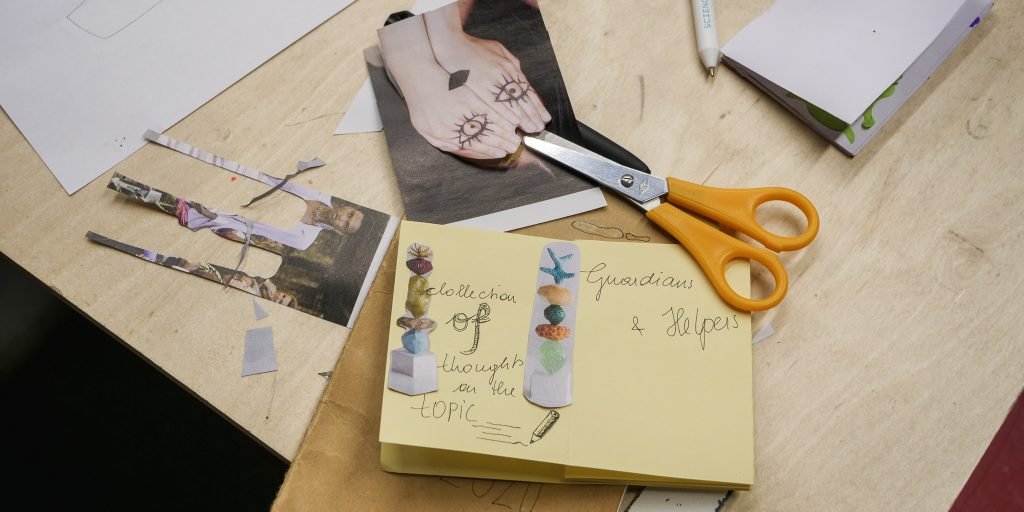Zine-making as an innovative form of reflective evaluation
Zines were used as a method of evaluative reflection within the EU Project SySTEM 2020, coordinated by Science Gallery Dublin.
Learners using zines as a learning portfolio method during SySTEM 2020 project..
The SySTEM 2020 Project explored on science learning outside the classroom, mapping practices in 19 countries across Europe, and evaluating a number of transdisciplinary approaches. This project, coordinated by Science Gallery Dublin, engaged with learners from various backgrounds on subjects combining art, science, design, and technology, and aimed to create a deeper understanding of the impacts of informal and non-formal learning on young people.
A key part of SySTEM 2020 was to examine science learning at the individual level and to do that the project has utilised zines as a learning portfolio method to help participantd reflect on STEAM learning. Zines are handmade pamphlets that contain anything from collage to poetry, and are a great way to share knowledge or express ideas.
The SySTEM2020 team found that using zines was a great way to tell personal stories about STEAM learning and that the zine methodology was ideal to reveal the learner’s reflection of their experience with Science Gallery, allowing a new kind of dialogue to take place between learners, educators, and institutions.
“As zine creators, learners are not as consumers of knowledge but as experts in their communities of knowledge.”
Learners using zines as a learning portfolio method during SySTEM 2020 project.
By empowering learners to use multiple written and visual languages and allowing to take creative control of the in zine-making process, the method revealed how topics were relevant and what engagements mattered the most to each participant. The reflective zines encouraged their makers to remix, represent, and reimagine science and STEAM learnings in ways which position the maker as the knowledge creator and expert.
The Science Gallery Network is very familiar with zines, and other examples of the galleries’ engagement with the method are the workshop “How to make a Zine” at Science Gallery Dublin, the Sci Curious Speculative Zines project, at Science Gallery Melbourne, and the Asynchronous Zine Making workshop during FUTURE PRESENT (2020) at Science Gallery Detroit.
WHAT THEY SAID?
‘As zine creators, the medium positions learners not as consumers of knowledge, but as critics, creators, and crucially, experts in their own communities of knowledge. With pen and paper, anyone can become a zinester (someone who makes zines). Zines put the learner in control. Throughout the SySTEM2020 project we wanted to examine not only what was happening in the field of informal science learning across Europe now, we wanted to shape the future, with tools and principles that created inclusive and empowering opportunities to engage with STEAM.’ - Autumn Brown, PhD researcher (Science Gallery Dublin)
WHAT WERE THE BENEFITS AND IMPACTS?
▶ Inspiring creativity
▶ Public engagement
▶ Development of communication skills
▶ Career Advancement
▶ Informal and nonformal learning
▶ Exposure to new ideas
Sources: Correspondence with Autumn Brown, SySTEM 2020 website, Science Gallery Dublin website.
Compiled by: Jahitza Balaniuk, Science Gallery International
Activity date(s): 2020


